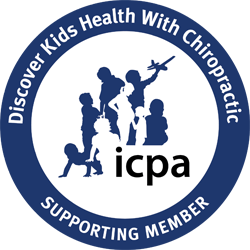
29 Jun Baby’s 1st Days: Your Essential Guide to Tummy Time
Dr. Erin’s Essential Guide to Tummy Time
I am so excited to explore the topic of tummy time with you today. This is a very near and dear subject to my heart, which I will get into a little later in this blog.

As a new parent getting to know your little one, emotions run high… from overwhelming love for your brand new baby and a sense of peace each time you smell your newborn’s little head to exhaustion from information overload and uncertainty that you’re fulfilling all of baby’s immediate needs.
Whooo, you’ve got a lot going on, Mom and Dad!
From birth to three months, a whole lot happens during this critical time for infant development. The awesome news – you are not alone.
As a doctor and a mom, I am often asked, “When should we start tummy time,” “Why is tummy time important,” and “What do I do if baby hates tummy time?” These are great questions, and I can’t wait to tackle them today. I will also be sharing a very personal story about my experience with tummy time when it came to my daughter, Ensley.
Alright, moms and dads, let’s do this…
What is Tummy Time, and How Do We Do It?
 Not rocket science, tummy time is placing your baby on their stomach while they are awake, and you are there to supervise (FYI – that supervising thing is critical).
Not rocket science, tummy time is placing your baby on their stomach while they are awake, and you are there to supervise (FYI – that supervising thing is critical).
In a safe and clear space, spread out a blanket and place your baby on his or her stomach for three to five minutes. In the beginning, try doing this two to three times a day.
As your baby gets used to tummy time, place your baby on his or her stomach more frequently and for more extended periods of time. You might arrange age-appropriate toys within his or her reach.
Your infant should never participate in tummy time when they are asleep or unsupervised, as it can lead to accidental injury or suffocation. Off-topic but oh-so-important, and since I’m a mom, I gotta mention it; infants should sleep positioned on their backs to prevent what is known as sudden infant death syndrome (SIDS), especially until the risk of SIDS decreases significantly at six months.
What are the Benefits of Tummy Time?
Tummy time is essential to your baby’s development and will help when it comes to meeting critical milestones. Let’s just say you’ll be glad you did it and that you started floor play as early as possible.
Benefits of tummy time include (but are not limited to):
- Tummy time helps in developing back, neck and shoulder muscles
- Tummy time is essential in meeting motor skill milestones like pushing up with arms, holding the head up, making fists, sitting correctly, crawling, etc.
- Tummy time also helps prevent conditions like twisted neck and flat head syndrome
As a chiropractor, the reason tummy time is so critical in my eyes is that it helps children integrate primitive reflexes, which are present at birth but should diminish with age. When these reflexes are maintained too long, it can inhibit the proper development of motor patterns such as crawling, walking, coordination, balance, and other essential movements we use daily as adults.
When Should Baby Start Tummy Time?
Immediately. What? It’s true, moms and dads. Who knew a baby’s first days should include exercising… because as new parents, you don’t have enough on your plate. But yep, it’s the truth. The American Academy of Pediatrics suggests that babies who begin tummy time within their first days are more likely to accept it, tolerate it, and you guessed it, enjoy it.
What’s more, is that, initially, babies can and should practice tummy time on their parents’ bellies, especially because this is a great way to make eye contact with your infant and engage with them in the early weeks.
 What if Little Lucy is three months old and you’re just learning about tummy time? That’s OK. Like I said before, you are not alone. And with that, here is my experience as a parent who also struggled with tummy time.
What if Little Lucy is three months old and you’re just learning about tummy time? That’s OK. Like I said before, you are not alone. And with that, here is my experience as a parent who also struggled with tummy time.
Looking back to my days as a new mother, I didn’t structure enough tummy time with my daughter, Ensley. As such, my husband and I have been battling some motor skill delays with her as she’s aged.
Why didn’t we do as much tummy time as is recommended for developing babies? Our fussy daughter didn’t like tummy time, and simply put, we avoided it. I wish I would have known then what I know now about how much incredible, holistic support there is out there for fussy babies. It’s true; information and support are abundant when it comes to helping these needy little humans.
As a doctor and a mom myself, I’ve learned so much over the past two years, which is why holistic health has become a passion of mine.
My daughter Ensley was the exact description of a “colicky” baby, but I didn’t accept or realize it at the time. My maternal instinct told me that she just needed me, and so I jumped at every chance to hold her, baby-wear her, and tend to her every cry by nursing her.
Now, let me say, I don’t regret my decisions at all, as they helped me develop such a close bond with my daughter. However, I wish I would have had better holistic support to address my baby’s upset stomach—rather than just pick her up at every whimper. What this created was my mental inability to listen to her cry and fuss when she was on the floor doing tummy time. I refused to accept that she had to “just lay there” and instead, I cuddled her when she needed me. What I didn’t realize is, down the road, this would cause some developmental delays in her gross motor skills.
Ensley is still playing catch-up from her 3-6 month delays in crawling, walking, and other activities, but she is growing more confident in these skills every day. We’ve been in pediatric OT and pediatric PT for over a year now, and I have laid awake many nights worrying about my child’s development. “How could this happen to my baby when I know so much?” replayed in my head over and over again.
Fast forward, and both the mom and the chiropractor in me have learned a valuable lesson. Instead of torturing mamas while they listen to their baby cry on the floor, let’s help educate new mothers about how to support colicky and fussy babies with chiropractic care, natural digestive support, infant massage techniques, and other really amazing tools we have in our toolkit.
Lastly, and because I know you’re thinking about it, you should also continue tummy time throughout baby’s first year. Just remember that whole supervising them thing as the older they get, the more adventurous they will be…
What to Do When Baby Hates Tummy Time
 If you’re the parent of a baby who hates tummy time, don’t worry too much. There are ways to help your baby adjust to tummy time. One of the best things you can do is get on the floor and participate in tummy time along with your baby. Nap, anyone? Just kidding!
If you’re the parent of a baby who hates tummy time, don’t worry too much. There are ways to help your baby adjust to tummy time. One of the best things you can do is get on the floor and participate in tummy time along with your baby. Nap, anyone? Just kidding!
If you’re on the floor hoping nobody can see you mimicking your baby and trying to get them to participate in tummy time and your little one continues to cry, try things like singing songs and comforting them with soothing back rubs and playful time.
Another pediatric chiropractor taught me this trick once, partially because it also helps convince parents to stay committed.
- Lay your baby on their belly on the floor and use a timer to count how long it takes until the baby cries
- Write this number down
- Each day, fit in multiple sessions of this time interval
- The next day, start the timer again and let your baby lay there for an extra 10 seconds than the day before
- Continue this pattern until after one week, and they’ve progressed almost a whole minute of tummy time in one session.
This timing exercise helps make it easier for the babies to adjust; it also gets easier for the parents when they know a timer is about to buzz, and the crying will shortly be over. Trust me, it works, and it’s like a mental challenge for yourself!
Nurture Chiropractic and Family Wellness is Here for You
At Nurture Chiropractic and Family Wellness, we understand the importance and benefits of baby’s tummy time and how it impacts their development. If you have any questions or would like more tummy time tips, please reach out to Dr. Erin, who loves to talk everything baby! Click here to schedule an appointment for your little one who could benefit from pediatric chiropractic care.







